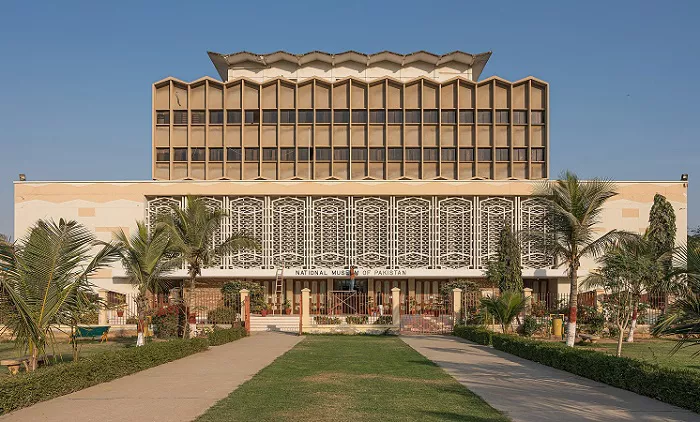KARACHI — In the southern province of Sindh, where the Indus River flows into the Arabian Sea, a new cultural landmark has emerged in the heart of Pakistan. The country’s first textiles museum, The Haveli, opened in Karachi in December, aiming to preserve the vibrant and historically layered textile traditions of the region.
Sindh, and particularly its bustling capital Karachi, has long been a melting pot of cultures, religions, and ethnicities. Prior to the 1947 Partition of India, nearly one-third of Sindh’s population identified as Hindu. While many Pakistani Hindus have since migrated to India, they left behind enduring cultural imprints, especially in textile arts that blend religious and ethnic influences into unique, syncretic expressions.
The Haveli is the result of a decades-long endeavor by Nasreen Askari, a renowned curator and scholar of South Asian textiles. The museum is housed in a breezy, modernist villa she shares with her husband, UK banker Hasan Askari. It serves as a repository for indigenous weaving, embroidery, and dye work—crafts that are deeply entwined with the identity and history of Sindh.
Askari’s fascination with textile traditions began in the 1970s, during her time as a medical student at a provincial hospital. While treating patients from distant rural communities, she was struck by the remarkable intricacy of their garments. “Dress was their identity,” she observed. Detailed patterns and motifs signaled an individual’s origin, religion, and social status. One patient explained the cultural specificity of their attire: “Only a Khosa Baluch would wear this flower.”
Motivated by this revelation, Askari began collaborating with the provincial government’s cultural department, joining field expeditions to document and collect textiles from rural communities. The museum’s current collection reflects the fruits of this sustained engagement—decades of research, acquisition, and preservation.
While other institutions in India and the West have dedicated resources to South Asian textiles, few have explored the nuanced distinctions within Pakistan’s diverse communities. Until now, no museum has focused exclusively on the subtle, often unrecorded textile identities of Pakistani groups. The Haveli fills this cultural void, offering a scholarly and visual homage to the artistry and complexity of Pakistan’s textile heritage.

